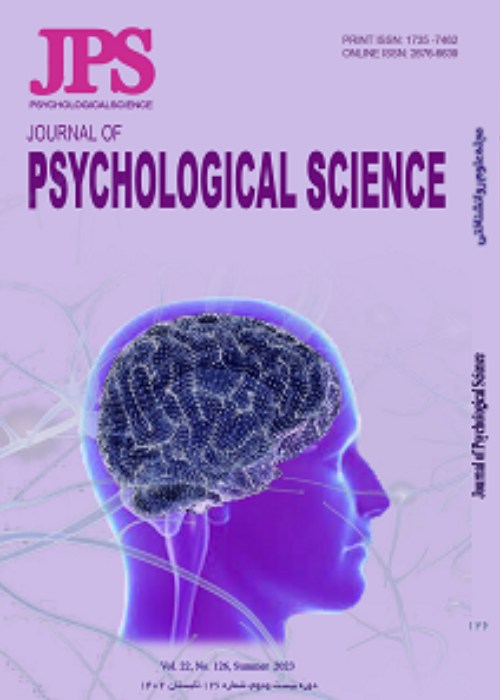Developing a model of academic conscience and problem solving on students' critical thinking mediated by communication skills
Academic conscience and problem solving ability are among the factors that have recently been considered in various educational, social and occupational fields. Highly conscientious students typically complete homework more seriously, and this feature can provide the basis for thinking, asking questions, communicating, and gathering information about an issue. Thus, developing a structural model of academic conscience, problem solving, and communication skills became a problem to clarify the role of each of these variables in relation to critical thinking.
The purpose of this project was to evaluate the model of explaining critical thinking skills based on academic conscience and problem solving through the mediation of students' communication skills.
The present study was Basic according to the purpose and correlational in terms of descriptive method. The statistical population in this study included all students of the University of Tehran in the academic year 1399-1400. The sample consisted of 400 students of literature and humanities, faculty of physical education and sport sciences, faculty of engineering sciences and faculty of mathematics, statistics and computer science in Tehran who were selected by cluster sampling method. Statistically selected. Data were collected from McIlroy and Banting (2002) Academic Conscience Questionnaire, Cassidy & Lang (1996) Problem Solving Styles Questionnaire, Queen Dam (2004) and the California Fasion and Fasion (1990) Critical Thinking Skills Questionnaire., Was used. Data were analyzed using SPSS 26 and AMOS 25 software. The collected data are analyzed using the structural equation modeling technique.
Evaluation of the hypothetical model of the study using fitness indicators showed that the hypothetical model fits the measurement model (CFI = 0.92, NFI = 0.90 and RMSEA = 0.06). The results of statistical analysis showed that problem solving and academic conscience have a positive and direct effect on communication skills with standard coefficients of 0.36 and 0.41, respectively. Problem solving and academic conscience mediated by communication skills have a significant effect on critical thinking with standard coefficients of 0.42 and 0.369 at the level of P <0.05, respectively. Communication skills also had a positive and significant effect on critical thinking with a standard coefficient of 0.32 at the level of P>0.05.
Based on the results of this study, it can be concluded that the ability to solve problems and have conscience and conscientiousness along with the ability to communicate with others provide the ground for appropriate questions and students can collect relevant information by reasoning and interaction.
- حق عضویت دریافتی صرف حمایت از نشریات عضو و نگهداری، تکمیل و توسعه مگیران میشود.
- پرداخت حق اشتراک و دانلود مقالات اجازه بازنشر آن در سایر رسانههای چاپی و دیجیتال را به کاربر نمیدهد.



